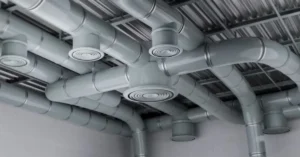The case of Linda de Sousa Abreu, a former prison officer at HMP Wandsworth in South London, has attracted significant public and media attention in recent months. The scandal began when a video surfaced showing Linda de Sousa Abreu engaging in inappropriate conduct with an inmate. The video quickly went viral, sparking debates over the integrity of the prison system and the ethical conduct of prison officers. In this article, we will delve into the details surrounding the case, explore the legal proceedings, and discuss the broader implications for prison reform, staff training, and oversight. This case also raises serious questions about the measures in place to prevent misconduct in correctional facilities, and how incidents like these impact both inmates and prison staff.
Background of the Incident: The Rise of Linda de Sousa Abreu in the Spotlight
The incident involving Linda de Sousa Abreu began when a video surfaced online showing her in a compromising situation with an inmate at HMP Wandsworth. This footage, filmed covertly, quickly went viral on various social media platforms, including Twitter and X (formerly known as Twitter). The video showed Linda de Sousa Abreu engaging in inappropriate conduct that violated the ethical boundaries expected of prison staff. In response to the video, the UK public expressed outrage, leading to calls for better monitoring and oversight of correctional staff across the country.
As the video spread, it became evident that Linda de Sousa Abreu was at the center of a major scandal, not only due to her involvement in the incident but also because of the subsequent legal charges she would face. The video quickly turned into a symbol of the vulnerability of the prison system, and it raised concerns about the standards and behavior of the individuals entrusted with overseeing inmates. The public and media were quick to question how such misconduct could have occurred in a correctional facility, and whether the existing system of checks and balances was sufficiently robust to prevent such incidents from happening in the first place.
Legal Proceedings: The Fallout for Linda de Sousa Abreu
In the aftermath of the incident, Linda de Sousa Abreu was arrested and charged with misconduct in public office. The charge stems from the allegation that she violated her professional duties and used her position as a prison officer for personal gain or to facilitate inappropriate actions with an inmate. The legal process surrounding her case began with an appearance at Uxbridge Magistrates’ Court, where she faced charges related to the misconduct.
The charges against Linda de Sousa Abreu are severe, given the nature of the crime and the position she held as a trusted member of the prison staff. Misconduct in public office is a serious offense that can result in significant legal penalties, including imprisonment, depending on the severity of the misconduct. The legal system will now need to determine whether Linda de Sousa Abreu‘s actions constitute a violation of her duty of care to the institution, to the inmates under her supervision, and to the general public, who place their trust in the integrity of the prison system.
As the legal proceedings continue, it remains to be seen what the outcome will be for Linda de Sousa Abreu. Regardless of the legal outcome, her actions have already had a profound impact on the public’s trust in the prison system and have led to questions about the oversight and accountability of correctional facilities.
Implications for Prison Reform
The Linda de Sousa Abreu incident highlights the vulnerabilities within the prison system and calls into question the measures in place to protect both inmates and staff. This case underscores the critical need for comprehensive prison reform to address not only the safety and wellbeing of inmates but also the behavior and conduct of the staff responsible for overseeing them. It also raises questions about the need for better staff training, increased monitoring, and more stringent policies to prevent misconduct from occurring within correctional facilities.
Staff Training and Conduct
One of the key issues raised by the Linda de Sousa Abreu case is the need for better training for prison officers. The fact that a prison officer like Linda de Sousa Abreu could engage in inappropriate conduct with an inmate suggests that there may be a lack of clear boundaries and ethical guidelines for staff behavior. Comprehensive training programs should be introduced for all prison officers to emphasize the importance of maintaining professional and ethical conduct, as well as to ensure that prison officers understand their responsibilities and the potential consequences of breaching these boundaries.
Training should not only focus on security and law enforcement but also include a strong emphasis on communication skills, ethical decision-making, and handling situations where inappropriate behavior may arise. Additionally, there should be specialized training on how to handle vulnerable inmates, who may be at higher risk of exploitation or mistreatment. Ensuring that prison officers are aware of the psychological dynamics within correctional facilities is crucial in preventing incidents like the one involving Linda de Sousa Abreu.
Monitoring and Oversight
In light of the incident, there has been renewed focus on the need for more stringent monitoring and oversight within correctional facilities. While many prisons already implement surveillance systems to monitor inmate behavior, it is equally important to monitor the actions of prison staff. In the case of Linda de Sousa Abreu, the misconduct may have been facilitated by a lack of monitoring or insufficient oversight of staff behavior. Better surveillance systems and regular checks should be implemented to ensure that prison officers are adhering to the ethical standards set by their institutions.
Moreover, oversight should not solely rely on surveillance cameras. Regular audits, anonymous reporting systems, and mechanisms for inmates to report misconduct in a safe and confidential manner could help improve transparency and accountability. Whistleblower protection is also crucial to ensure that staff members feel secure in reporting inappropriate behavior without fear of retaliation.
Support for Inmates
A vital aspect of prison reform that is often overlooked is the support and rehabilitation services provided to inmates. In some cases, inmates may feel powerless to report misconduct due to fear of retaliation or a lack of trust in the system. Ensuring that inmates have access to counseling, legal services, and other forms of support is essential for creating an environment where they feel safe and protected from exploitation.
Providing education and rehabilitation programs that focus on personal development, life skills, and mental health can also help reduce the likelihood of misconduct by both inmates and staff. An environment that fosters rehabilitation and personal growth will improve the overall atmosphere of correctional facilities and decrease the chances of conflicts, power imbalances, and exploitation occurring within the system.
The Public Reaction and Media Coverage
The incident involving Linda de Sousa Abreu quickly became a media sensation, drawing attention not only in the UK but internationally. The video showing her inappropriate conduct with an inmate sparked widespread outrage, and the ensuing legal proceedings have kept the public engaged. The media played a significant role in bringing this case to the forefront and encouraging discussion about the integrity of correctional facilities.
News outlets covered the scandal extensively, with many focusing on the violation of trust that had occurred within HMP Wandsworth. Public reaction to the scandal was one of shock and disbelief, with many people expressing concern over the potential for other similar incidents to occur in prisons around the world. The case also ignited conversations about broader issues within the prison system, such as the treatment of inmates, the ethics of prison staff, and the need for better accountability mechanisms.
The role of social media in spreading the video and further publicizing the case has also been significant. The viral nature of the video meant that the incident quickly reached a global audience, and social media platforms became a key space for people to express their opinions on the matter. This highlights the power of digital platforms in shaping public discourse and influencing societal perceptions of issues related to criminal justice.
Conclusion: A Call for Reform
The scandal involving Linda de Sousa Abreu is a stark reminder of the vulnerabilities within the prison system and the importance of maintaining high ethical standards among correctional staff. While the legal proceedings are ongoing, it is clear that this case has brought significant attention to the need for reform in the prison system. Staff training, improved monitoring systems, and better support for inmates are just a few areas that require urgent attention. It is essential that the prison system evolves to ensure that incidents like this do not occur again, and that both inmates and staff are protected from exploitation and misconduct.
As the case of Linda de Sousa Abreu continues to unfold, it is hoped that meaningful changes will be made within the prison system to restore public trust and promote a safer, more ethical environment for all involved.
FAQs
- Who is Linda de Sousa Abreu?
- Linda de Sousa Abreu is a former prison officer at HMP Wandsworth who became involved in a scandal after a video surfaced showing her engaging in inappropriate conduct with an inmate.
- What charges did Linda de Sousa Abreu face?
- Linda de Sousa Abreu was charged with misconduct in public office after being caught in a compromising situation with an inmate at HMP Wandsworth.
- Where did the incident take place?
- The incident involving Linda de Sousa Abreu took place at HMP Wandsworth, a prison in South London, England.
- What are the potential consequences for Linda de Sousa Abreu?
- If convicted, Linda de Sousa Abreu could face significant legal consequences, including potential imprisonment.
- What reforms are being discussed as a result of this case?
- Discussions have focused on improving staff training, implementing better monitoring systems, and providing enhanced support for inmates to prevent similar incidents in the future.
- How has the public reacted to the scandal?
- The public has expressed outrage and concern about the integrity of the prison system, with widespread media coverage of the incident.









